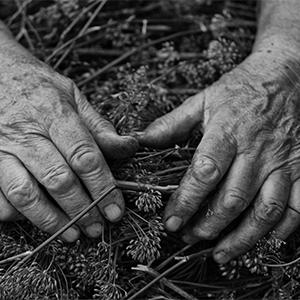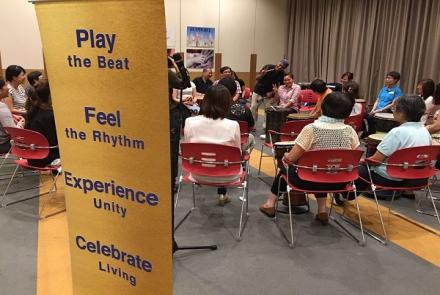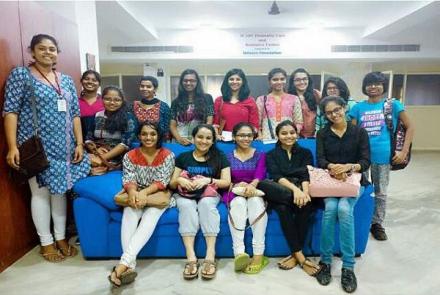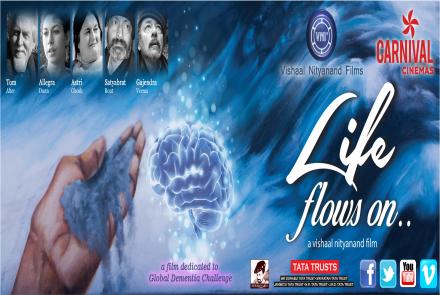
Disasters such as floods have an even worse impact on people with dementia. Dr Sridhar Vaitheswaran explains what precautions and coping measures can be taken
A disaster is defined as an unexpected event that kills a lot of people or causes a lot of damage (Oxford Advanced Learner’s Dictionary). During a disaster, routine life is affected to a significant extent. Individual lives are under threat and the immediate focus is on protecting lives. The capacity of organisations that generally manage services in society is overwhelmed.
Why are persons with dementia vulnerable?
Those with dementia are vulnerable even at the best of times. During times of disaster, they are at increased risk due to a variety of reasons.
- Due to their inability to remember information provided to them they are unlikely to take precautions.
- With difficulties in communication they may not follow instructions or express their concerns.
- With impaired orientation they may have difficulties in retaining sense of time, place and person.
In addition, due to overall impairment in their ability to process information and make decisions, they may struggle to understand the situation and act in a safe manner.
Also, those with poor eyesight or hearing and those with poor physical health may experience further challenges.
What is the effect of disasters on persons with dementia?
There are reports of lingering psychological effects of trauma in those with dementia such as post-traumatic stress disorder following disaster experiences. In an interesting study following an earthquake in Japan, it was shown that those with dementia might retain some memory of the adverse experience supporting the theory that those memories associated with strong emotional reactions may be retained in those with dementia. This can be quite detrimental to their overall health and well-being post-disaster and place them at an increased risk for dependency and symptom deterioration.
Is maintaining a routine important?
Studies done in the USA after hurricanes show that evacuating care-homes following an initial warning of hurricanes result in increased risk of mortality in the subsequent months among those with dementia. This may be due to a disruption in the routine of a person with dementia. Sticking to a routine is very important for those with dementia. Routine gives a sense of security and enhances wellbeing. Any change in routine can be quite difficult for those with dementia to cope with. During a disaster, routine life is affected and often can result in difficulties for the person with dementia. They may become more disoriented and confused. They also may be more agitated and can have altered sleep-wake patterns.
What can help?
Caregivers need to be aware of the challenges to help persons with dementia cope better with disasters and resultant changes in routines. General measures to ensure safety and wellbeing are common for all. Following are some tips to help.
- Anticipate challenges: Not all those with dementia will have difficulties but many will experience problems. As caregivers, it helps to anticipate challenges. This can only be achieved with better understanding of the person, their circumstances and their life. Being forewarned is forearmed!
- Be prepared: If you live in a disaster prone area, make sure to have a disaster management plan. An emergency kit with survival essentials including the medicines is vital. Some form of identification on the person with dementia is essential. A laminated card with their personal details, address and contact number will be useful. Names and phone numbers written in their clothes with indelible ink is also recommended.
- Maintain routine: Maintain routines as much as possible. While there may be multiple challenges in keeping a routine, not keeping them may throw many more for the person with dementia.
- Reassure: Interact with the person with dementia using a calm and reassuring approach. Remember that the person with dementia will be able to experience your emotions. Your anxiety can be passed to them.
- Simple instructions: Keep your communication simple with short sentences. Do not give complex commands. Break down complex tasks into a series of simple instructions that the person with dementia can follow.
- Adhere to medicines: Make sure that the person with dementia is taking all their medication as prescribed.
In fact, many of these tips will be useful even on a day-to-day basis to improve the quality of life of the person with dementia, and not just during the times of disasters. Also, you may need to seek professional help when necessary and available.
Dr. Sridhar Vaitheswaran is a Consultant Psychiatrist based in Chennai with the Schizophrenia Research Foundation (India)
This was written after the Chennai floods in 2015
















